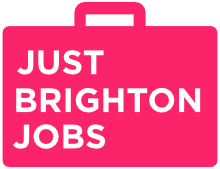So you’ve just graduated university, and you’re ready to change the world – or, at least, get a job so you can buy that house.
Where do you start? A lot of employers ask for 3-5 years experience in any given field just to get a look in at the interview stage. If not, they’re talking graduate-level entry jobs, but there are so many people out there applying for that same position that you need to work out how to make yourself stand out.
Luckily, there are a number of ways you can get yourself to the top of the pile, and it starts with planning (so reading this article is a good start!).
To make it easy, we’re going to break it into a few sections: Skills, CV, Personality.
Skills that employers look for in graduates
What skills does an employer look for when assessing graduate applications? This is not an easy, or short, answer. Let’s start with some of the top qualification-related skills that employers are consistently telling us they want to see displayed: hard skills, time management, decision making abilities and creative problem solving.
The last few in that list could almost fall into the third section of this article, but we’ll get to them shortly. First let’s look at hard skills.
What are hard skills?
These are the technical capabilities that will mean you can come into the role and start performing immediately.
It may not demonstrate to the employer that you’re a future CEO, but it means that if you’re applying for a web design role, you can code in HTML5+ and Javascript. If you’re looking to be the next Mike Ross, you have a legitimate Law degree.
This hard skills bit is basically your qualification that you’ve just graduated from, and needs to be front and centre of your application along with why you’re better at it than your co-graduates.
The others that almost fall into personality traits are your soft skills. These are the things that make you stand out in the qualifications section, because it shows you can take your hard skills, learnt through your course/degree/studies, and apply them to contextual work situations.
One last part of this worth mentioning is what are called ‘transferable skills’. These are often synonymous with the soft skills above, and are handy in showing employers that, even if you haven’t had experience in their specific industry, the skills you’ve displayed in your degree or in previous work not directly relevant has helped your form the abilities needed to succeed in this role.
How do I make a graduate CV that will stand out?
This follows on from the section above. As well as the standard ‘don’t have any grammatical or spelling errors’ and ‘design your CV to be easy to read, and to stand out’ advice for building a winning resume, you need to highlight the combination of hard and soft skills.
This is what will get your an interview, at which point your personality traits (covered below) can come through.
It’s important to highlight the good parts of yourself in your CV. Don’t make a song and dance about something you can’t do. Just include everything you can!
Did you prove through your degree and work experience jaunts that you’re incredible at thinking outside the box?
Demonstrate that through examples that tie in with your hard skills.
What personality traits does my future employer want me to exhibit?
From here, you’re hitting the interview. Sure, some of these might have been suggested in the CV but you really need to prove it to the panel.
Employers say that, particularly for candidates without real-world experience on the job, there are certain personality traits that signify potential success.
These can be remembered as CARPP: Confidence, Adaptability, Resilience, Positivity and Proactiveness.
In your interview, speak with confidence. That means be prepared, and take your time with questions.
An interviewer would prefer a candidate think silently before answering, than stammer out a few ‘ums’ in a row.
Convey adaptability: give multiple responses to a question and be able to give examples of working to specific needs.
Display resilience: when have you needed to back yourself in and keep going through a tough situation.
Be positive: employers don’t like negativity in a candidate (yes, that means smile).
And finally, show that you’re proactive and have great initiative. This can be as obvious as giving an example from experience, or as subtle as kicking off the interview by asking the employers how their morning has been!
Next steps
Ready to put your graduate skills to work? Start your career journey in Brighton, where exciting opportunities await. Explore job openings in Brighton now and take the first step towards a successful future.
Don’t miss out on your dream job – begin your search today! 🌟

